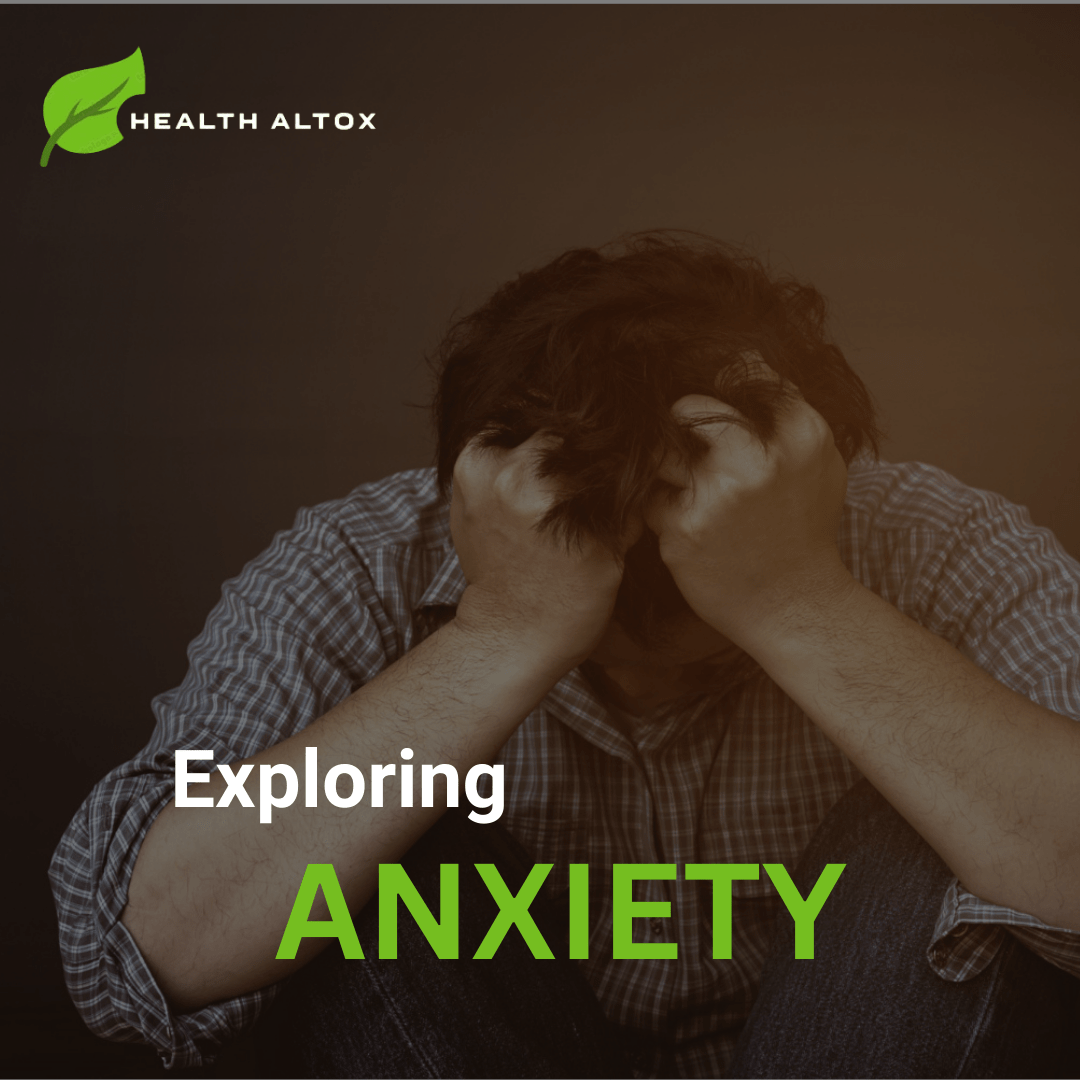Exploring Anxiety | A Complete Guide

Did you know that anxiety is one of the most common mental health conditions that people face worldwide? It’s a tough situation that can affect anyone, and millions struggle with it daily. It can manifest in various forms and can have a significant impact on a person’s daily life. In this guide, we will explore anxiety in detail, including its symptoms, causes, and treatment options.
What is Anxiety?
Anxiety is a feeling of worry, fear, or unease about an upcoming event or uncertain outcome. It is a natural stress response and can be beneficial in certain situations, such as preparing for a job interview or giving a presentation. However, when anxiety becomes excessive and interferes with daily life, it can be classified as a mental health disorder.
Symptoms of Anxiety
Anxiety can cause a wide range of symptoms that affect the body, mind, and behavior. These symptoms can be physical, emotional, or behavioral. Some
common symptoms of anxiety include:
- Excessive worry or fear
- Restlessness or feeling on edge
- Difficulty concentrating
- Muscle tension fatigue
- Difficulty sleeping
- Irritability
- Panic attacks
- Avoidance of certain situations or activities
Types of Anxiety Disorders
There are various kinds of anxiety disorders. including:
- Generalized Anxiety Disorder (GAD): This is characterized by excessive worry and fear about everyday situations.
- Panic Disorder: This involves sudden and repeated episodes of intense fear, known as panic attacks.
- Social Anxiety Disorder: This is a fear of social situations and interactions.
- Specific Phobias: This is an intense fear of a specific object or situation, such as heights or spiders.
- Obsessive-Compulsive Disorder (OCD): This involves recurring thoughts and behaviors that a person feels compelled to repeat.
- Post-Traumatic Stress Disorder (PTSD): This is a mental health condition that can develop after experiencing or witnessing a traumatic event.
What Causes Anxiety?
The cause of anxiety is not yet fully understood, but it is believed to be a combination of genetic, environmental, and psychological factors. Some common risk factors for anxiety are:
- Family history of anxiety or other mental health disorders
- Traumatic or stressful life events
- Chronic medical conditions
- Substance abuse
- Personality traits, such as being a perfectionist or having low self-esteem
How is Anxiety Diagnosed?
If you’re experiencing symptoms of anxiety, it’s important to seek help from a mental health professional. They will conduct a thorough evaluation, including a physical exam, psychological evaluation, and discussion of your symptoms and medical history.
There is no specific test for anxiety, but your doctor may use various tools, such as questionnaires, to assess the severity of your symptoms and determine a diagnosis.
Treatment Options for Anxiety
Anxiety is a treatable condition, and there are several options available to help manage symptoms and improve overall well-being. Here are some commonly used treatment options for anxiety:
Therapy
Therapy, also known as talk therapy, is a common treatment for anxiety. It involves talking to a mental health professional about your thoughts, feelings, and behaviors to identify and address underlying issues that may be contributing to your anxiety.
Some other kinds of therapy used to treat anxiety include:
- Cognitive Behavioral Therapy (CBT): This therapy is designed to help individuals identify and modify negative thought patterns and behaviors.
- Exposure Therapy: This involves gradually exposing a person to their fears or triggers in a controlled environment to help them overcome their anxiety.
- Acceptance and Commitment Therapy (ACT): This type of therapy focuses on accepting and managing difficult thoughts and feelings rather than trying to eliminate them.

Medications
To effectively manage anxiety symptoms, medication could be prescribed in certain situations. Some common medications used to treat anxiety include:
- Selective Serotonin Reuptake Inhibitors (SSRIs): These are a type of antidepressant that can help improve mood and reduce anxiety symptoms.
- Benzodiazepines: These are a type of sedative that can help reduce anxiety in the short term.
- Beta-Blockers: These medications can help reduce physical symptoms of anxiety, such as rapid heart rate and trembling.
It is essential to work closely with a doctor when taking medication for anxiety, as they can help monitor for any potential side effects and adjust the dosage as needed.
Lifestyle Changes
Making lifestyle changes can also help manage symptoms of anxiety. Some common lifestyle changes that may be beneficial include:
- Regular exercise: Regular exercise can significantly reduce stress levels and improve overall well-being.
- Healthy diet: Eating a balanced diet can help improve mood and energy levels.
- Adequate sleep: Getting enough sleep is essential for managing anxiety.
- Stress management techniques: Techniques such as deep breathing, meditation, and yoga can help reduce stress and anxiety.
How to Tell if Shortness of Breath is from Anxiety
Shortness of breath is a common symptom of anxiety, but it can also be a sign of other medical conditions. If you are experiencing shortness of breath, it is essential to seek medical attention to determine the cause.
Some signs that shortness of breath may be caused by anxiety include:
- It occurs during or after a panic attack or stressful situation.
- It is accompanied by other symptoms of anxiety, such as rapid heart rate, sweating, and trembling.
- It improves with relaxation techniques, such as deep breathing.
Coping with Anxiety
Living with anxiety can be challenging, but several coping strategies can help manage symptoms and improve overall well-being. “Here are some common coping strategies that may help you manage anxiety: “
It is recommended that you practice relaxation techniques such as deep breathing, meditation, or yoga to alleviate stress and anxiety.
- Engage in regular physical activity.
- Get enough sleep.
- Avoid or limit caffeine and alcohol.
- Talk to a trusted friend or family member about your feelings.
- Seek support from a mental health professional.
- Join a help group for people with anxiety.
When to Seek Help
If you are experiencing symptoms of anxiety that are interfering with your daily life, it is essential to seek help from a mental health professional. They can diagnose your condition accurately and develop a personalized treatment plan.
It is also essential to seek help if you are experiencing suicidal thoughts or behaviors. You can call the National Suicide Prevention Lifeline at 1-800-273-8255 for immediate assistance.
Takeaways
Anxiety is a common mental health condition that can have a significant impact on a person’s daily life. It is essential to seek help from a mental health professional if you are experiencing symptoms of anxiety. Treatment options, such as therapy, medication, and lifestyle changes, can help manage symptoms and improve overall well-being. Remember, you are not alone, and there is help available for managing anxiety.






